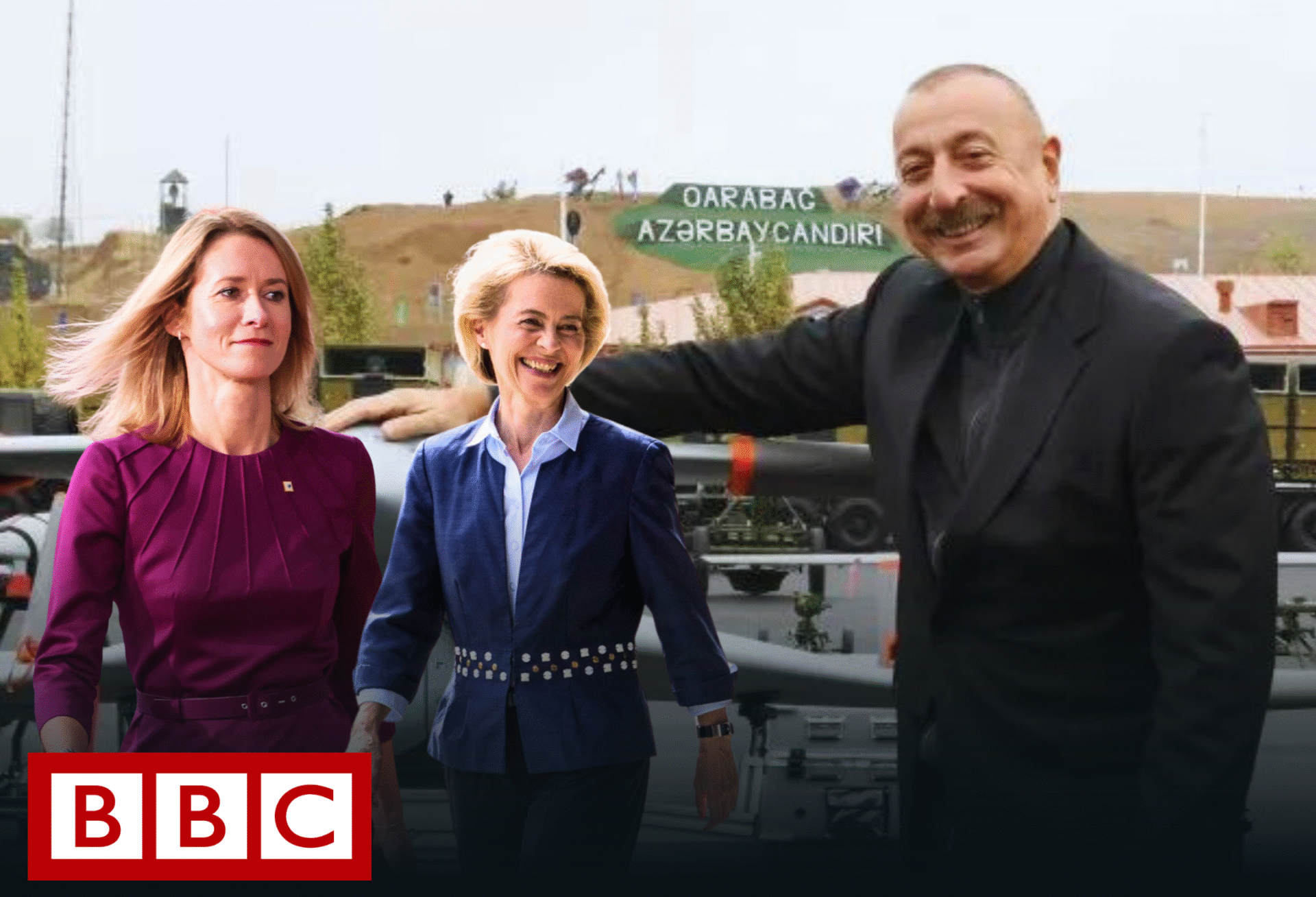A new BBC investigation by Magerram Zeynalov and Grigor Atanesian reveals how the European Union’s deepening reliance on Azerbaijani gas—meant to reduce dependence on Russian energy—has come at a steep cost: the EU’s silence on Azerbaijan’s escalating human rights abuses.
One of the clearest examples is the case of Bahruz Samadov, a 30-year-old peace activist and PhD student sentenced last month to 15 years in prison for high treason. Supporters say the charges are politically motivated and fabricated. His imprisonment has outraged Azerbaijan’s shrinking civil society and international observers, who accuse the EU of turning a blind eye to growing repression.
“The EU may keep flirting with Baku, but silence has its cost,” one of Samadov’s friends told the BBC.
Energy Over Rights
Since Russia’s full-scale invasion of Ukraine, European Commission President Ursula von der Leyen has called Azerbaijan a “key partner” in the EU’s drive to wean itself off Russian gas. The Southern Gas Corridor, carrying Azerbaijani gas to Europe, has been hailed as a strategic win. Yet, as the BBC highlights, this partnership coincides with an intensified crackdown on journalists, activists, and opposition figures under President Ilham Aliyev’s 21-year rule.
Although Azerbaijani gas accounts for just 4.3% of the EU’s total imports, reliance is far higher in certain states: Bulgaria (40%), Italy, and Greece (15%) each depend heavily on Baku’s supplies. Diplomats told the BBC that this uneven dependence has weakened Europe’s ability to present a united, forceful response to Azerbaijan’s human rights violations.
Samadov’s Plight
Samadov’s sentence is among the harshest ever handed to a government critic. Known for his anti-authoritarian writings and peaceful activism, he reportedly attempted suicide in prison, reflecting the psychological toll of his detention. Yet, the EU has remained silent, a pattern mirrored last month when seven investigative journalists received long jail terms, prompting only a tepid EU statement calling it a “worrying development.”
Rights Concerns Pushed Aside
Former Latvian diplomat Eldar Mamedov, who served as a foreign policy adviser to the European Parliament’s Social Democrats, told the BBC that repression in Azerbaijan had long strained relations with Brussels. But since Russia’s invasion of Ukraine, this issue has “virtually disappeared from the agenda.”
The EU maintains it is “concerned by the shrinking civic space in Azerbaijan” and claims it raises these issues publicly and privately. But multiple sources in the BBC report suggest these discussions carry little weight in shaping policy.
Geopolitical Leverage
The BBC notes that Azerbaijan’s value to Europe goes beyond energy. Baku has supported Ukraine’s territorial integrity and sent humanitarian aid—an uncommon stance among former Soviet states often aligned with Moscow. Meanwhile, relations between Azerbaijan and Russia have worsened following the downing of an Azerbaijani Airlines plane by a Russian missile (killing 38) and the deaths of two Azerbaijani men in Russian police custody.
Analysts say Aliyev has used this geopolitical positioning to his advantage, presenting himself as a regional counterweight to Russia while tightening his grip at home. Western governments, needing energy and strategic allies, have largely looked the other way.
In April, EU foreign policy chief Kaja Kallas visited Baku and praised the “great potential” of EU-Azerbaijan ties. The trip drew heavy criticism from Azerbaijani civil society, as more than 20 journalists remained jailed, and international media and aid organizations—including the BBC—had been expelled.
A senior EU diplomat admitted anonymously: “We are absolutely not happy with [Azerbaijan’s human rights record], but there is not much we can do.”
Moral Consequences
For Samadov’s supporters and Azerbaijan’s embattled dissidents, this diplomatic caution feels like abandonment. As the BBC concludes, Europe’s energy-first approach has moral consequences—especially for those who remain imprisoned, silenced, and at risk while the EU deepens ties with Baku.


